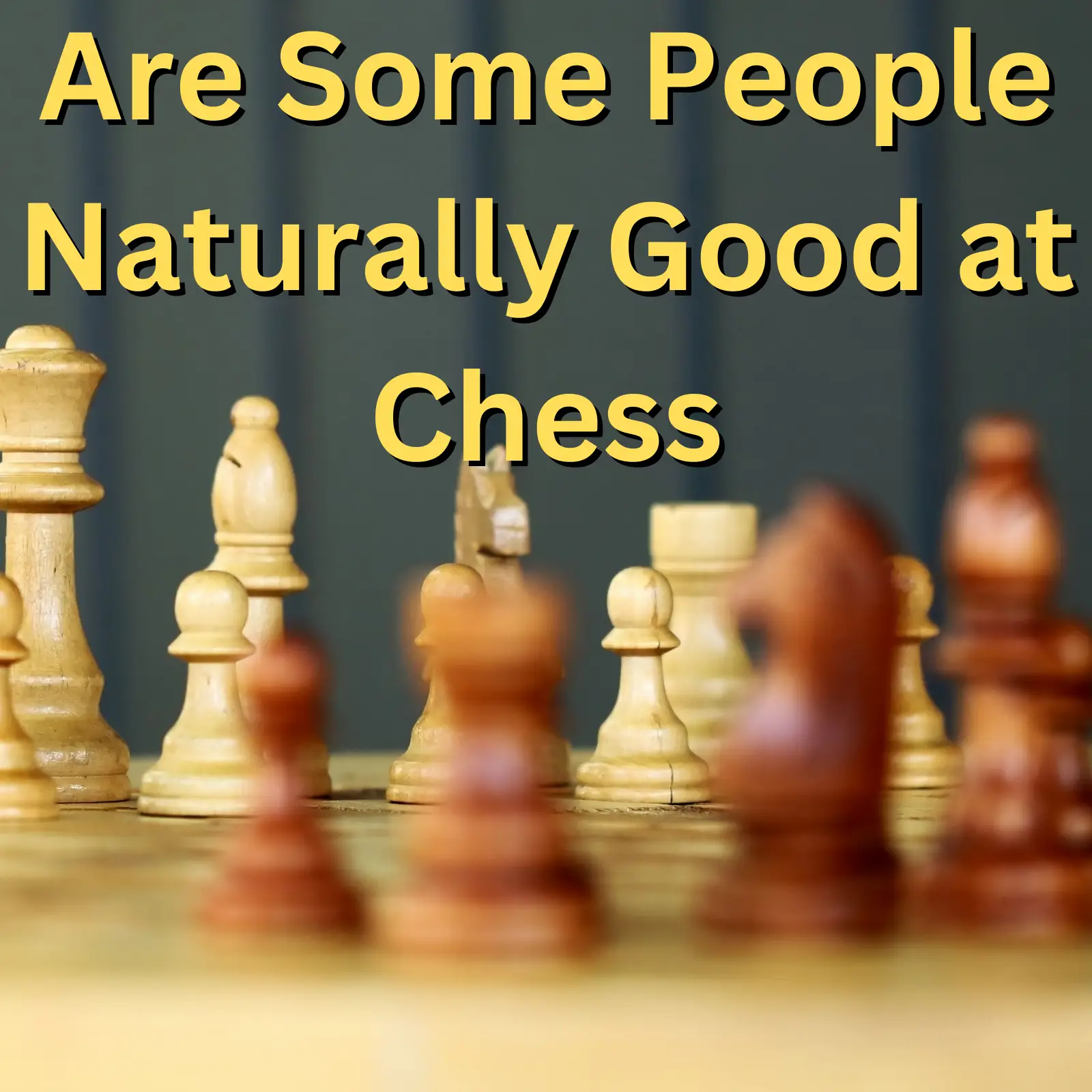
Are Some People Naturally Good at Chess
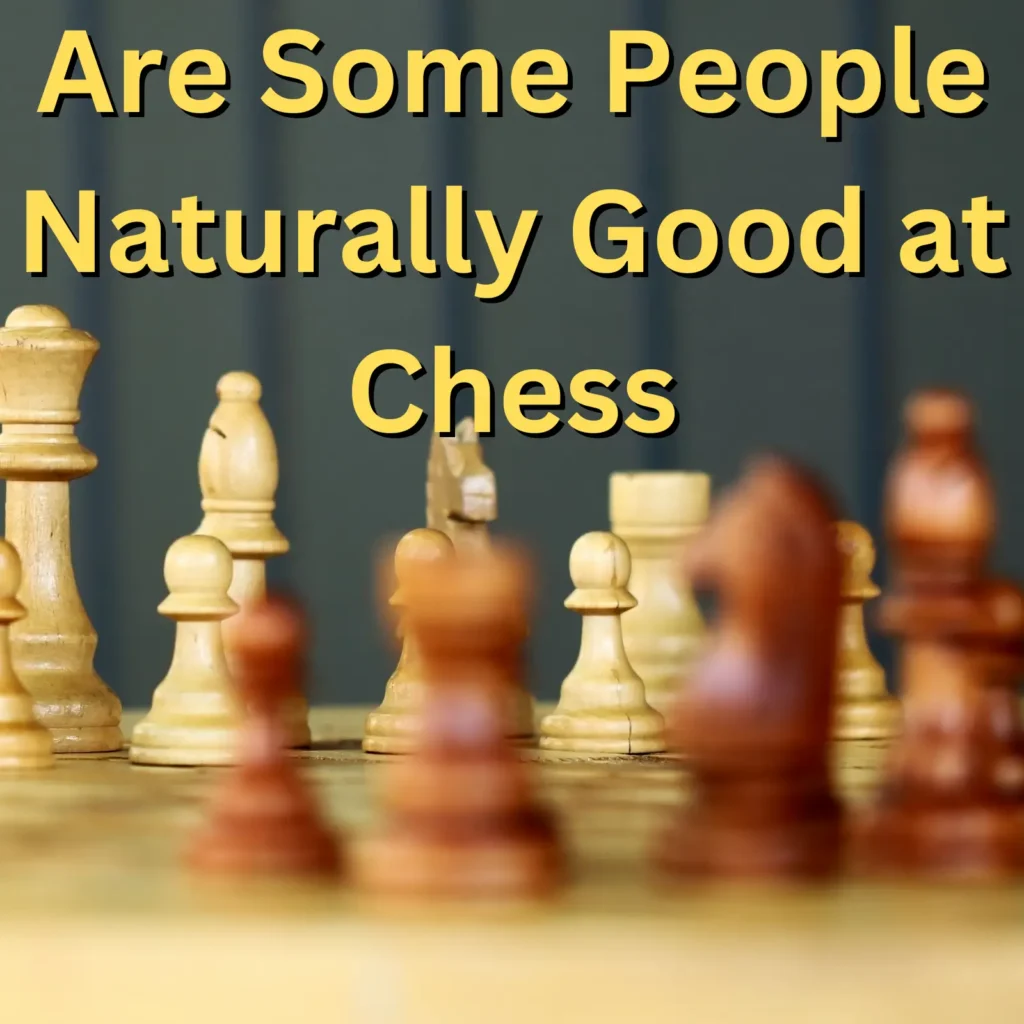
Are Some People Naturally Good at Chess
Chess is an amazing game; Some people dedicate their entire lives to getting better at it. But some are just naturally good at chess, why is that? Is being good at chess genetic? Is It in our DNA? What about people with amazing memory are they better at chess than the general population?
This is what we’re going to focus on in this article, sit back and let us guide you through this topic: What makes some people naturally better than others at chess?
Are some people naturally good at chess
Like every activity worth doing, chess is difficult. And some people are naturally better at it than others.
Some players seem destined to play chess, they have the talent, the opportunity and the desire to improve at the game, this in turn encourages them to keep playing every day. Eventually they can become the best chess players in the world.
On the other hand, some people have talent, but for many reasons they don’t work on their game, maybe they don’t really like chess that much, maybe they play other games instead. Whatever the reason these people might have the talent but they don’t have the desire to play at the highest level. These players never reach their full potential but are still strong players.
And finally, we have those players who have the desire and maybe the opportunity but they lack that final “spark” that is needed to reach the top. Many of these players are complete chess nerds, but after a certain point, spending more time playing is not going to help them get stronger.
If you’re an amateur chess player, don’t be discouraged by the idea that you can’t get better. Studies have shown that chess ability actually keeps increasing with age, you can become a better chess player almost your entire life!
Maybe we can’t all reach the top of the rankings but that doesn’t mean we can’t enjoy chess.
Is being good at chess genetic

Yes, probably. If we define “being good at chess” as reaching the top of the rankings, then getting there might be already impossible for 99% of people.
But that’s only if we define “being good at chess” only in terms of results. A lot of people play and enjoy chess every day all over the world. They’re probably not grand masters, masters or any titled players!
In my opinion “being good at chess” could be as simple as being a competent player, that is someone who can have a reasonable chance of winning when playing against an average opponent.
So how do we determine that? Well, it’s difficult. In chess.com the average rating varies by time and other factors, in blitz the average rating is around 500, in lichess this same percentile (50%) is 1450 because they use Glicko-2.
So just relying on a number is not the best way to look at it. Instead we should focus on having the fundamentals down. Solid opening, no blundering, decent endgame and so on. Do those constantly and you should consider yourself “fairly decent”.
While I don’t think everyone can be a master level player, I think it’s reasonable to assume with some effort most of us can reach something close to 60-70% percentile ranking points with enough time.
Do chess players have photographic memory
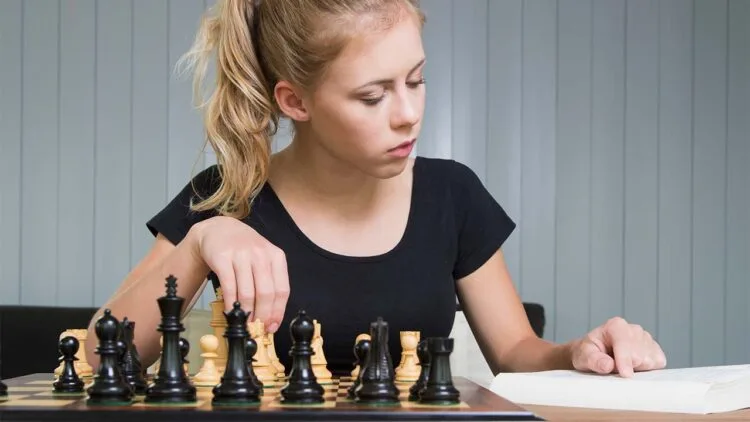
This is an interesting question, first of all the entire concept of “photographic memory” has never been proven.
Yes, the entire idea that there are people around who can remember entire books from memory is completely false. We’re sorry to disappoint our readers but this is all a myth, nothing more.
So no, chess players do not have “photographic memory” but what about “Eidetic Memory”?
Well Eidetic Memory is pretty much the same as photographic memory, another cool concept that people talk about casually at lunch, not something that is real, or proven. Just like photographic memory chances are that Eidetic Memory is just not true and even if it were true, it would only apply to children and for a very short period of time.
Now while both of those might not be true, there are ample examples of chess GMs that can recall entire matches from memory, unlike the other claims these ones have been documented extensively.
But the big difference is that this superhuman ability to memorize such details only applies to chess, so these chess GMs can recall perfectly a game they played a couple of years ago but they might no remember their old email account password!
In fact, there are multiple examples of memory competition champions who can’t even remember what they have to do in a day, so they keep sticky notes.
Memory is that simple; we might be able to remember specific things but the idea that some of us can remember things twice or twenty times more than others is just not true.
What type of intelligence is good at chess
There are many studies that focus on the relationship between intelligence and chess. It’s a great way to determine the role general intelligence has on our ability to increase our skills at something in particular.
Chess is perfect for this as we can use indicators like IQ, age, and so on and combine them with objective rankings of chess skill like Elo, Glicko and so on.
One study in particular that we looked at found that In every case, the smarter person was the better chess player. Now this doesn’t necessarily mean that chess skill is equal to intelligence. But it does mean that there is a limit to how much we can improve with practice.
“Chess players’ performance was significantly superior in cognitive abilities such as processing speed, planning, fluid intelligence and memory than in study participants who didn’t play chess.”
The idea that we can get better at anything with enough effort and determination is deeply ingrained in our culture. It’s not uncommon to see children as young as 5 being enrolled in piano classes, sports and extra-curricular activities in an effort to “enhance” their learning. It’s especially common in Asia for example.
These findings don’t mean that these activities are a waste of time, or that chess skill is predetermined at the time of birth. It just means that there is an objective limit to how much each of us can improve with practice.
Is it harder to play chess with ADHD
You might be worried that your diagnosis of ADHD prevents you from reaching your potential. And yes, while ADHD can be a serious roadblock in your path to progress as a chess player, there are multiple examples of people with ADHD that have had great success in chess.
One of the most notorious examples currently is GM Eric Hansen. Born in California, Hansen was diagnosed with ADHD at age 8, he was quickly prescribed Ritalin and he was enrolled in a special school for kids with disabilities.
Nowadays Eric Hansen is the main host of “Chessbrah” chess channel on Twitch with more than 200k subscribers. He is one of the best players in the world with a peak rating of 2629. He even defeated World Champion Magnus Carlsen in 2022.
In my opinion, while ADHD can be a serious problem for some, it doesn’t limit your potential. It just makes it more difficult for you to focus for long periods of time. You might need treatment and training but there is a pretty good chance that you can be just as good as anyone else at chess with ADHD.
Conclusion
Alright, so we talked about all the different ways people can be naturally adept at playing chess. From a young age you can already spot the differences between people. If it’s not their skill it might just be their interest but you can quickly tell who is going to be a better player.
We also talked about why that might not be all that is required to be a good player, even with the highest possible potential, if the player never plays or he just simply hates the game, then he’s not going to be very good at it.
No matter the circumstances we can all get better at pretty much everything every single day. We might not be able to become chess grand masters but that doesn’t stop us from becoming competent chess players, so I do believe we can all become good enough!
Related
- Did Einstein say chess was a waste of time
- How to Introduce a 5-year-old to Chess
- Is High IQ Related to Chess
References
You may also like
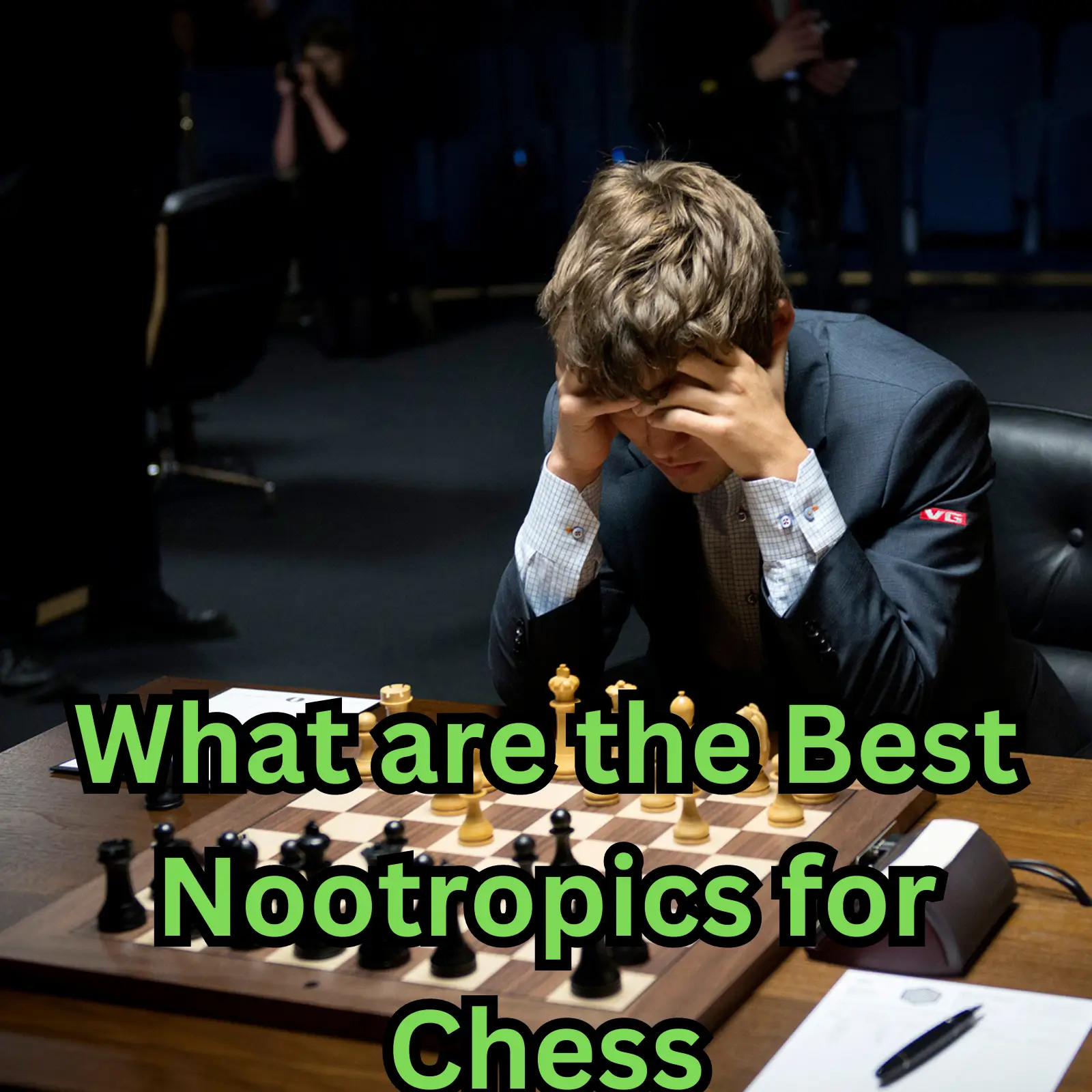
What are the Best Nootropics for Chess
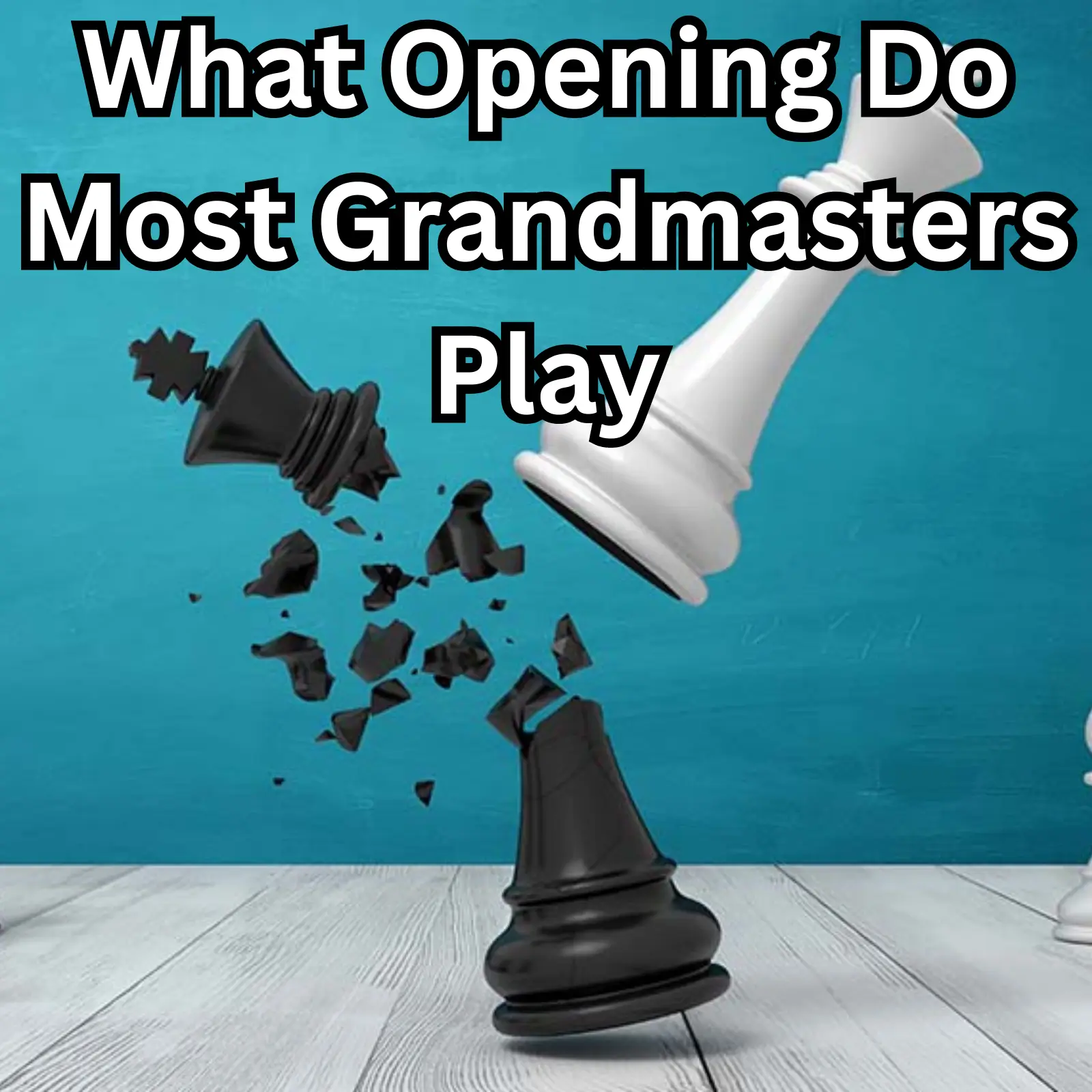
What Opening Do Most Grandmasters Play
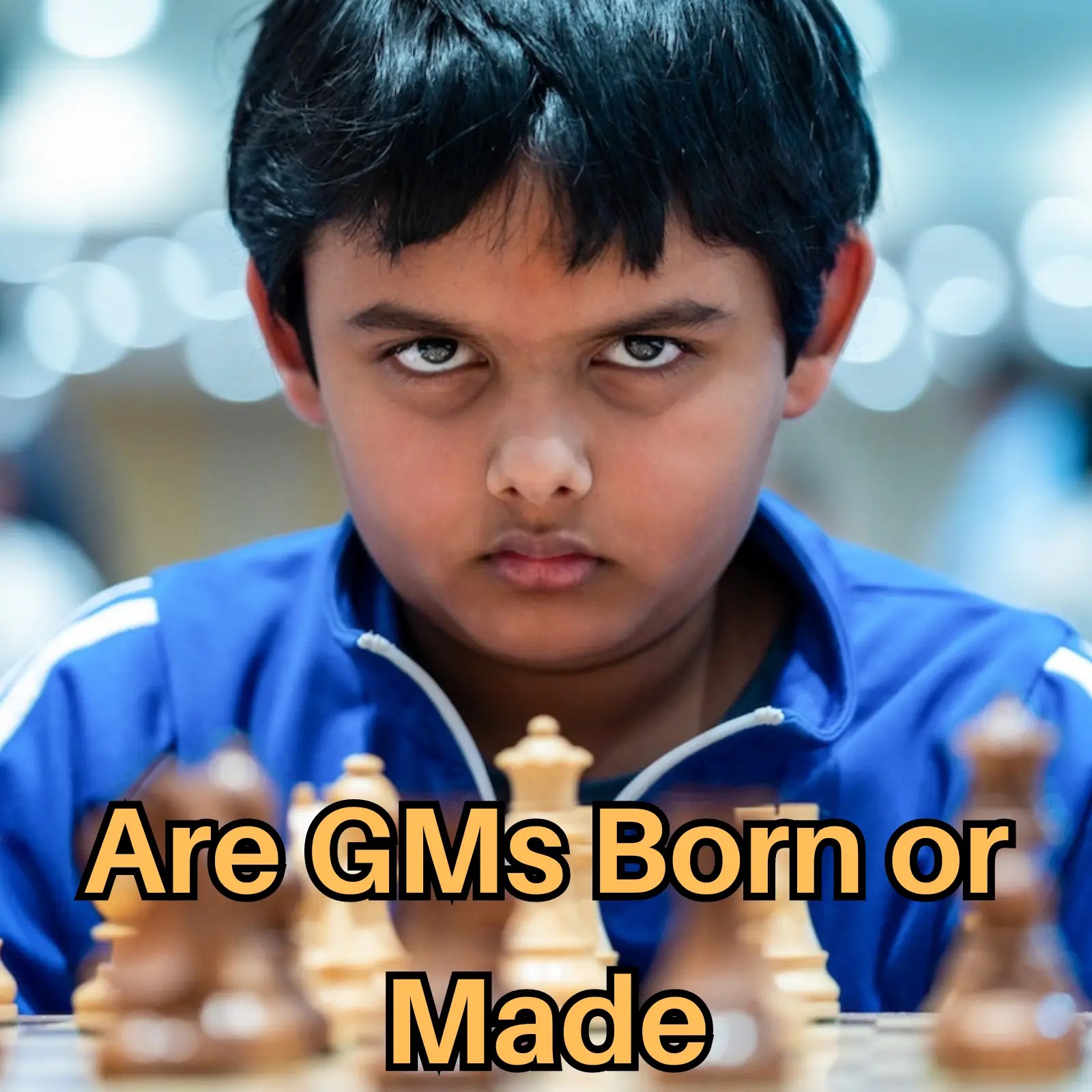
Are Grandmasters Born or Made
Archives
- February 2026
- January 2026
- December 2025
- November 2025
- October 2025
- September 2025
- August 2025
- July 2025
- June 2025
- May 2025
- April 2025
- March 2025
- February 2025
- January 2024
- October 2023
- September 2023
- August 2023
- July 2023
- June 2023
- May 2023
- April 2023
- March 2023
- February 2023
- January 2023
- December 2022
- November 2022
- October 2022
- September 2022
- August 2022
- June 2022
- May 2022
- April 2022
- March 2022
- January 2022
- December 2021
- November 2021
- October 2021
- August 2021
- November 2020
- July 2020
- May 2020
- April 2020
- March 2020
- August 2018
- July 2018
- June 2018
- April 2018
- March 2018
Categories
- Aftercare Procedures
- Age Groups
- AI/ML
- Alternative Medicine
- Ambient Computing
- Animal Health
- Animal Husbandry
- Animals
- Anti-Aging
- Architectural Design
- Art And Technology
- Auditory Science
- Augmented Reality
- Automation
- Babies
- Baby
- Beauty & Skincare
- Beauty Industry
- Biohacking
- Biomechanics
- Book Reviews
- Breastfeeding
- Budgeting
- Budgeting Strategies
- Business
- Cardiovascular Health
- Career Advice
- Career Development
- Career Growth
- Cats
- Chess
- Chronobeauty
- Circular Economy
- Civic Technology
- Cleaning Tips
- Cloud Computing
- Cognitive Health
- Cognitive Performance
- Cognitive Science
- Community
- Community Building
- Community Engagement
- Community Living
- Computer Vision
- Consumer Guides
- Consumer Trends
- Container Gardening
- Content Analysis
- Content Non-Technical
- Content Strategy
- Cooking Techniques
- Cosmetic Chemistry
- Cultural Events
- Cycling
- Data Analysis
- Data Engineering
- Data Governance
- Data Science
- Database
- Design Psychology
- Design Trends
- Developer Productivity
- Diet
- Diet
- Diet And Nutrition
- Digital Identity
- Digital Media
- Digital Wellbeing
- DIY
- DIY Projects
- Dogs
- Engineering Culture
- Entertainment News
- Environmental Impact
- Environmental Science
- Equity Compensation
- Ethical AI
- Exercise
- Exercise Science
- Exercise Technique
- Exotic Pets
- Fall Gardening
- Family
- Family Health
- Family Life
- Fashion Business
- Fashion Industry
- Fashion News
- Fashion Tech
- Financial Analysis
- Financial Optimization
- Financial Planning
- Flooring Maintenance
- Food
- Food Psychology
- Food Safety
- Food Science
- Food Tech
- Functional Fitness
- Functional Training
- Future Of Work
- Garden Care
- Garden Maintenance
- Gardening Tips
- Geospatial Data
- Gig Economy
- Greece
- Greek
- Greek Food
- Green Technology
- Gymnastics
- Hardware Engineering
- Health
- Health And Wellness
- Health Informatics
- Health Science
- Health Tech
- Health Technology
- Healthcare
- Healthcare Management
- Healthy Eating
- Healthy Recipes
- Holistic Health
- Holistic Wellness
- Home & Living
- Home Decor
- Home Financing
- Home Health
- Home Improvement
- Home Maintenance
- Home Organization
- Home Styling
- Horticulture
- Household Chemistry
- Identity Management
- Indoor Gardening
- Industrial Design
- Industry Analysis
- Infant Nutrition
- Infrastructure Management
- Ingredient Deep Dive
- Integrative Health
- Integrative Medicine
- Interior Design
- Internet of Things
- Internet of Things (IoT)
- Invalid Request
- Investment Strategies
- Investment Strategy
- IoT
- Kids
- Leadership Development
- Learning Strategies
- Lifestyle
- Lifestyle Brands
- Lifestyle News
- Lifestyle Optimization
- Literary Criticism
- Literature
- Logistics Management
- Machine Learning
- Material Science
- Materials Science
- Meal Planning
- Media Analysis
- Meditation
- Mental Health
- Mental Performance
- Mental Wellness
- Miami
- Miami Food
- Mind And Body
- Minimalism
- Mobile Development
- Neuroscience
- No Applicable Categories
- Nursing
- Nutrition
- Nutrition News
- Open Source
- Operating Systems
- Operational Resilience
- Opinion
- Organization Tips
- Outdoor Living
- Over 40
- Over 50
- Over 60
- Parenting
- Parenting
- Parenting Strategies
- Performance
- Performance Optimization
- Personal Development
- Personal Finance
- Personal Growth
- Personal Productivity
- Pet Care
- Pet Safety
- Philosophy
- Plant Care
- Politics
- Product Formulation
- Productivity
- Productivity Engineering
- Protein
- Psychology
- Psychology of Space
- Quantified Self
- Reading Culture
- Real Estate Investment
- Recipes
- Regulatory Compliance
- Remote Work
- Renovation Planning
- Resource Management
- Respiratory Health
- Responsible Pet Ownership
- Retail Strategy
- Retail Technology
- Robotics
- Science
- Seafood
- Seasonal Gardening
- Security
- Sedentary Health
- Self-Care
- Skincare Science
- Skincare Trends
- Sleep
- Sleep Health
- Smart Home
- Smoothies
- Social Impact
- Soft Skills
- Soil Health
- Spatial Computing
- Spatial Design
- Stress Management
- Supplements
- Sustainability
- Sustainability Science
- Sustainable Engineering
- Sustainable Fashion
- Systems Engineering
- Tax Optimization
- Tax Strategy
- Tech Investment
- Technical Writing
- Testing
- Travel
- Travel News
- Travel Safety
- Travel Tips
- Trend Analysis
- Tropical Plants
- Uncategorized
- Urban Gardening
- Urban Planning
- User Experience
- Veggie
- Vietnam
- Virtual Events
- Volunteering
- Wealth Management
- Wearable Technology
- Web Development
- Wellness
- Wellness Technology
- Winter Gardening
- Work-Life Balance
- Workplace Culture
- Workspace Setup
- World
- Writing
- Writing Skills
- Year In Review
- Yoga
- Yoga News
- Zero Waste

Leave a Reply